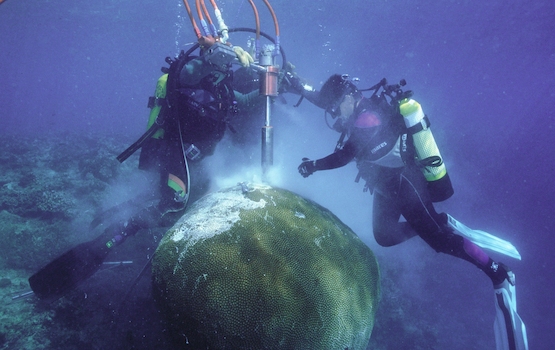An international team of climate scientists studied a 653-year coral in Fiji to learn more about ocean temperatures and climate fluctuations across the Pacific Ocean since 1370.
The findings were contained in a new study published in Science Advances, co-authored by Dr Ariaan Purich from Monash University and Professor Matthew England and Dr Rishav Goyal from UNSW.
The research details how human-caused climate change is interacting with long-term climate patterns in the Pacific.
It also shows that the current ocean temperature is the highest in at least 653 years, according to the coral.

Ocean temperatures influence coral growth so corals can preserve records of past environmental conditions over centuries, a statement from Monash University says.
Dr Purich says understanding long-term climate variability in the Pacific is crucial for predicting future climate change.
“This new, long reconstruction helps us untangle the climate change signal from natural variations in the Pacific,” she says.
“Understanding the past helps us to project future climate change; our new reconstruction shows us that current Pacific-wide warming is a feature of the climate-change era.”
The coral’s record shows that the local ocean temperature was warm between 1380 and 1553 (comparable to the late 20th and early 21st centuries).
But, when combined with other coral records, a Pacific-wide warming observed since 1920 and largely linked to human emissions is a significant departure from the natural fluctuations recorded in earlier centuries.
The work provides new insights to understand how climate trends are leading to shifts in weather patterns and more extreme weather events.
This 627-year coral record (1370-1997) provides the longest continuous sea surface temperature reconstruction to date.
The study was led by Dr Juan Pablo D’Olivo from the University of Mexico and Professor Jens Zinke from the University of Leicester, in collaboration with earth and climate scientists from Mexico, United Kingdom, France, Germany and Australia.
Dr Purich said the findings have a range of implications for future climate.
“Temperature variations across the Pacific influence weather systems – broad-scale warming can lead to a drying climate across the Coral Sea region. This will impact the people and ecosystems across the vulnerable Pacific Island nations.”






